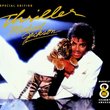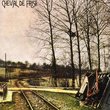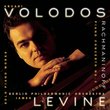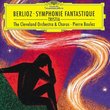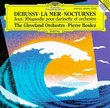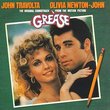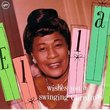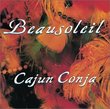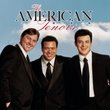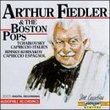| All Artists: Johann Sebastian Bach, Glenn Gould Title: Bach: Goldberg Variations, BWV 988 (The Historic 1955 Debut Recording) Members Wishing: 0 Total Copies: 2 Label: Sony Original Release Date: 1/1/1992 Re-Release Date: 10/27/1992 Genre: Classical Styles: Historical Periods, Baroque (c.1600-1750), Modern, 20th, & 21st Century, Instruments, Keyboard, Symphonies Number of Discs: 1 SwapaCD Credits: 1 UPC: 074645259420 |
Search - Johann Sebastian Bach, Glenn Gould :: Bach: Goldberg Variations, BWV 988 (The Historic 1955 Debut Recording)
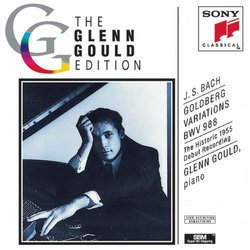 | Johann Sebastian Bach, Glenn Gould Bach: Goldberg Variations, BWV 988 (The Historic 1955 Debut Recording) Genre: Classical
In the main, sonic differences between Sony Classical's 20-bit remastering of this landmark 1955 recording and its previous incarnation in the CBS Great Performances series (CBS MYK 38479) are subtle rather than striking. ... more » ![header=[] body=[This CD is available to be requested as disc only.]](/images/attributes/disc.png?v=15401716) ![header=[] body=[This CD is unavailable to be requested with the disc and back insert at this time.]](/images/attributes/greyed_disc_back.png?v=15401716) ![header=[] body=[This CD is available to be requested with the disc and front insert.]](/images/attributes/disc_front.png?v=15401716) ![header=[] body=[This CD is unavailable to be requested with the disc, front and back inserts at this time.]](/images/attributes/greyed_disc_front_back.png?v=15401716) |
Larger Image |
CD DetailsSynopsis
Amazon.com In the main, sonic differences between Sony Classical's 20-bit remastering of this landmark 1955 recording and its previous incarnation in the CBS Great Performances series (CBS MYK 38479) are subtle rather than striking. Tape hiss is reduced, while ambient studio noise is heightened, bringing Glenn Gould's trademark humming and squeaky chair more into the foreground. One can also perceive slight changes in microphone setups between certain variations. Gould completists, however, will want this Glenn Gould Edition transfer for two fugues recorded in 1957, drastically different from the pianist's perverse remakes 13 years later for his complete Well Tempered Clavier Book II. Any respectable piano collection, however, should include Gould's debut Goldbergs, at any price. --Jed Distler Similar CDs
Similarly Requested CDs
|
CD ReviewsA State of Wonder, Indeed. Paul K. Stadden | Pensacola Florida | 04/08/2006 (5 out of 5 stars) "There are three people who are responsible for the "resurrection" of the Goldberg variations, at least as far as the general publicis concerned: Wanda Landoska, Rosalyn Tureck, and Glenn Gould. Without them, the Goldberg Variations certainly would not get the attention they do, and may have ended up a curiosity music students discover on budget labels by performers seeking overblown and romantic interpetations or sterile "period correct" (in other words, uninformed) performances that leave listeners yawning. Instead, thanks to those three, the Goldberg is as well know even to the casual music listener as Beethoven's Pathetique or Mozart's Rondo a la Turka are. Now, I certainly believe that Landowska's rendition is the most well informed, and even the most revolutionary in terms of true period correctness (she was the first to record it for the harpsichord and with correct baroque ornamentation), and she had a musicality that made the listener believe they were listening to an orchestra instead of just a single keyboardist. Tureck's interpretation is so dancelike and pleasant. It sounds so free and happy, I get the image that there are dancers on the keys of her piano. She was really the one that showed that the Goldberg Variations could be performed on a piano without reverting to the overly romanticized versions that had dominated up to that time. It was Landowska and Tureck two that allowed for what is arguably the most famous interpretation of the Goldbergs: Glenn Gould's 1955 recording. Inspired by Landowska's passion for early music done right, and Tureck's justified piano performance that stood out head and shoulders above the others, Gould combined the best elements of the two and added his own rhythmic and dynamic perfection to create a masterpiece of a recording. His tempi were (in general) nearly twice as fast as most performers', indeed as his own 1981 recording, which, in places, I prefer (refer to variations 1,5,10,14,16, and 29), yet he is always in control and never sounds like he's straining to get to the next note. His staccato and light touch give it wonderful bell-like clarity, and it's the closest you'll get to a harpsichord recording on a piano. Yes, his 1981 recording is more mature, but it's a difference in interpretation than technical prowess, and I think the choice between the two comes down to mood, and even, as mentioned above, to the individual variations. This recording was his first studio recording, presenting all the fire and passion of a twenty three year old showing the world that he's got something to prove. An odd choice for a first recording, most pianists would probably be forced into some half-hearted renditions of Chopin or Mozart, but Gould knew what he was doing. He must have known that the time was right for a Bach interpretation that paid homage to the greatness achieved in the past as well as one that strode confidently into the future, a future where (in a philosophy like Landowska's) old music was no longer quaint but revered and modern music didn't seek to "revolutionize" but instead sought to build upon. This was an increasingly prevalent attitude in the 1950's and 1960's thanks to people like Landowska, Harnoncourt, and, of course, Gould. We can see this philosophy in Durufle, De Falla (one of the first twentieth century composers to write for the harpsichord), and later Stravinsky. Gould's Goldbergs played no small part in Baroque's new birth. Do yourself a favor and get both of Gould's Goldbergs, Wanda Landowska's Goldbergs, and perhaps Koroliov's Goldbergs or Tatiana Nikolayeva's Goldbergs. You'll be quite glad you did." Do you want the Fugues too? Mr. Contrarian | Seattle, WA United States | 03/25/2004 (5 out of 5 stars) "I love both of Glenn Gould's versions of Goldberg Variations, the first in 1955 (this one) made him famous, while the last one in 1981 was his swan song. The 1981 version definitely has the fuller modern sound and Gould goes deeper, yet 1955 is historic, the sound is still excellent, and Gould's technique is just amazing! However, this particular packaging includes more than Goldberg Variations. Two fugues from Well Tempered Clavier are added to the end. Good music definitely, but personally, I just want the Goldberg Variations with no additives. If you don't object to the extras, then by all means get this CD. But if you are like me, look for the older "Great Performances" version by CBS/Columbia. It has only Goldberg Variations, with no fugues.If you are new to Glenn Gould, just remember that even now, twenty years after his death, his work remains controversial. Everyone agrees that he was a masterful pianist, one of the best ever, but many people just don't like his eccentric approach to Bach. They find the fast parts too fast, and slow is too slow. In the 1981 version, many object to Gould's tuneless humming in the background. Eccentric? You bet. But nobody else could even get away with it. "That nut is a genius," as Szell was once heard to quip.Anyone who finds Gould too eccentric, or perverse, should try Angela Hewitt or Rosalyn Tureck. I love their versions of Goldberg Variations too! Rosalyn Tureck spent her entire career of about 60 years studying Bach, and recorded Goldberg Variations at least three times. All are excellent. Angela Hewitt is just masterful, and plays with sheer devotion." The Marlon Brando of piano! Hiram Gomez Pardo | Valencia, Venezuela | 02/16/2006 (5 out of 5 stars) "These Goldberg formally inaugurated the auspicious debut of this well famed pianist. Until that time Bach was played with such impeccable austerity and intellectuality that literally became a shock to listen a very young man -23- challenging all the musical conventionalisms and old precepts which turned around the conceptual steadiness and serious formalism at the moment to play Bach at the piano.
Gould made an incisive breakthrough and showed that the formality and the Dionysian spirit may habit together, without those bitter presumptions or austere poses. He impregnated the Goldberg variations with Mediterranean jubilee, effusiveness and radiant greenness. And this posture influenced a whole generation in all fields. So those Goldberg carry on its own trademark. A historical reference by all accounts. Indispensable collection piece. " |

 Track Listings (34) - Disc #1
Track Listings (34) - Disc #1